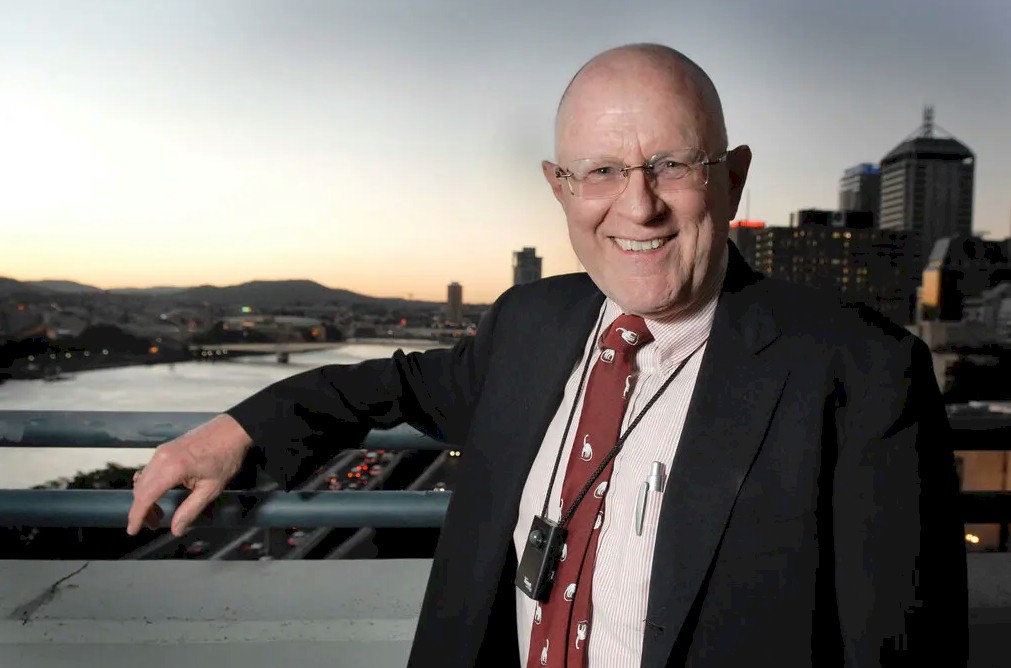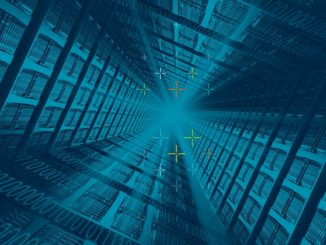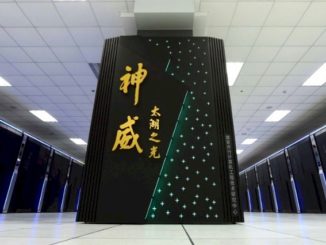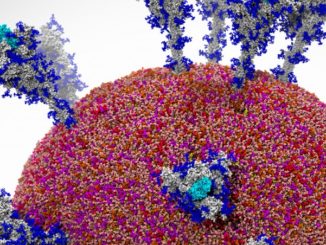
Two Gordons loom large in the history of computing, and both made observations about the interplay of economics and technology and how they foster progress, which have both been enshrined as laws.
We lost the second of them – Gordon Bell – recently, on May 17. The first, Intel co-founder Gordon Moore, died in March last year. Both lived full and long lives, packed with accomplishments and executed with charm, wit, tenacity, and crystal clear intelligence.
Chester Gordon Bell was born in Kirksville, Missouri in 1934 and was named after both his father, Chester Bell, and electrician and appliance repairman, and Lola Gordon Bell, a grade school teacher. It would be hard to find a more American or fertile upbringing than this. According to the obituary in the New York Times, Bell had a congenital heart condition when he was seven, and spent most of the second grade at home on bed, and spent the time doing chemistry experiments, cutting his own jigsaw puzzles, and wiring circuits. After he recovered, he worked in his father’s shop, tearing apart gear and fixing it.
This kind of story is repeated again and again in the annals of computer history. Something that Bell was also very keen on preserving. Among his many accomplishments, Bell was a co-founder of The Computer Museum, which started out in a coat closet at the headquarters of minicomputer and technical computing innovator Digital Equipment Corp, which is technically living on inside the midrange system and HPC businesses of Hewlett Packard Enterprise these days. The original Computer History Museum was established by Bell in 1968 when he worked at DEC, and it was moved to Silicon Valley during the Dot-Com Boom. Some of the original DEC PDP and VAX machines that Bell created in the 1960s and 1970s are there today, and they still work.
Like many early computing pioneers, Bell went to the Massachusetts Institute of Technology, and he got his bachelors degree in electrical engineering in 1956 and his masters degree a year later. Bell then got a Fulbright Scholarship to the University of New South Wales in Australia, where he taught computer systems design. And this is what makes Gordon Bell an excellent complement to Gordon Moore. While the latter focused on innovations in semiconductors, the former was always working at the higher systems level. Both were instrumental in driving down the cost of computing, and it is this pursuit that units them.
After returning to Boston, Bell worked in the Speech Computation Laboratory at MIT for two years, and then was tapped by DEC co-founders Ken Olsen and Harlan Anderson in 1960 as their first engineering hire as they created the first Programmed Data Processor, or PDP minicomputers and changed the nature of datacenter computing. (DEC is an offshoot of MIT’s Lincoln Labs as much as Sun Microsystems was an offshoot of Stanford University.)
The PDP-1 cost $120,000, which was a lot of money at the time, but other machines like IBM 1401 mainframes were even more expensive. Bell created the I/O subsystem for this PDP-1 machine. Bell was elevated to system architect for the PDP-4 in 1962 and the PDP-6 in 1964. (That is Bell to the left of the PDP-6 console in the feature image above; Alan Kotok is to the right.) Only 23 of the PDP-6s were ever sold, but by moving to silicon transistors ad and flip-chip packaging with the PDP-10 launched in 1966 that was based on fundamentally the same architecture, DEC sold about 1,500 of these machines and dropped the unit price – by how much, we do not know, but we do know the machine was twice as fast as the PDP-6 it replaced.
This was the same time that IBM had launched the System/360 mainframe, which turned 60 last month in terms of launch date but was not really shipping in volume until 1965 and into 1966.
After a fallout with Olsen in the wake of the PDP-10 launch, Bell left DEC and taught computer science at Carnegie Mellon. When Olsen wanted to revamp the PDP line and create the legendary VAX system, the two buried the hatchet and Bell became the vice president of engineering to lead the product, which was arguably the most successful minicomputer in history and without question the foundation of technical computing for the masses.

Bell left DEC again in 1983 after suffering a heart attack, and co-founded supercomputer upstart Encore Computer, with Ken Fisher (formerly chief executive officer at minicomputer maker Prime Computer) and Henry Burkhardt (formerly co-founder of system maker Data General and later co-founder of supercomputer maker Kendall Square Research.
The goal at Encore Computer was to build a supercomputer out of commodity parts and therefore drive the price of supercomputing radically down. Bell was also a co-founder of supercomputer maker Ardent Computer in in 1986 and was there when it merged with supercomputer maker Stellar Computer in 1989, forming Stardent Computer. (There were a lot of minicomputer and supercomputer makers in the late 1980s, and most of them were gone within a decade.)
During this time of froth and foment in the 1980s, Bell became involved with the National Science Foundation to help drive its investments in supercomputing and also established the Gordon Bell Prize in conjunction with the Association of Computing Machinery to drive innovation in parallel processing. The Gordon Bell Prize is the touchstone of achievement in the supercomputing industry, and it will remain so as long as humans doing the systems and simulation design.
Bell is also famous for talking Microsoft into establishing a research arm in the 1990s when it started to play more solidly in datacenter computing and application programming, and he joined Microsoft Research and worked on a slew of projects from 1995 to 2012.
And that brings us to Bell’s Law, which is corollary of sorts at the systems level to Moore’s Law.
Moore’s Law, which was first codified in 1965, states that the density of transistors on a chip doubles every 18 months (then 24 months as the pace of chip manufacturing technology slowed) and that also drives down the cost of the semiconductors at the heart of systems by a factor of two every 18 months (then 24 months). The price of transistors is now going up even if the density of transistors is still increasing, which is why we say Moore’s Law has run out of gas. Moore’s Law was about money, not packaging, because it is the ever-lowering cost of transistors that drives progress in computing.
Bell’s Law cannot run out of gas because it is a statement about systems, not transistors. It states: “Roughly every decade a new, lower priced computer class forms based on a new programming platform, network, and interface resulting in new usage and the establishment of a new industry.”
And thus we have the mainframe era in the 1960s, the minicomputer era of the 1970s, the PC era of the 1980s, this network is the computer era of the 1990s where network effects come into play, cloud computing of the 2000s, and smartphones of the 2010s. Those are rough lines, and the wonder is that we are doing here in the 2020s. It looks like another network effect, on this time it is generative AI.
We just wanted to say thanks, Gordon.





Superb contribution to supercomputing by Gordon Bell, with PDP, VAX, Bell’s Law, and the prestigious Gordon Bell prize. The first few of these awards (1987+) went to work on nCube and Connection Machines (CM, CM-2, …) that may be viewed as “ancestors” to current computational GPUs, vector/matrix accelerators, and dataflow machines. A lot of foresight, and a life well lived!
Good article but need to proof it. Tons of typos and errors.
DEC was the best company I ever worked at.
Gordon Bell was always the smartest person in the room.
I have no doubt about either. Thanks for sharing, Dave.
NOT dec/Jerusalem!
No editor? A compliment is praise, and “complement” is accompaniment. Spelling errors question veracity of article.
Yup. Fixed it.
There was only one Gordon Bell and he shall be missed dearly as a humble human being with an amazing sense for adventure and having FUN as well!